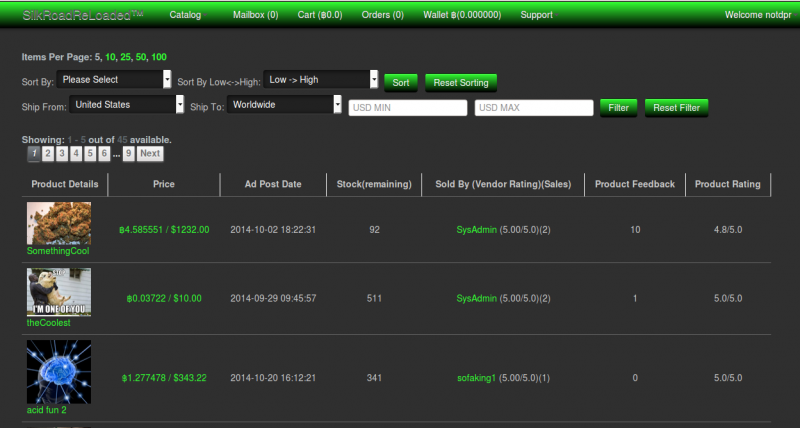The original Silk Road, multiple successors and several other copycat online drug markets have all been taken offline in recent years. The one thing they've all had in common - aside from selling illegal goods and services - is that they've all lived on the Tor network.
Operators of the latest iteration of Silk Road, aptly known as Silk Road Reloaded, are taking a different approach as it uses a little-known alternative called I2P.
Another key difference between the original Silk Road and this newcomer is the fact that the new site accepts more than just Bitcoins as a form of payment. Silk Road Reloaded deals in eight different cryptocurrencies including Litecoin, Darkcoin, Anoncoin and meme-inspired Dogecoin.

Transactions processed in currencies not named Bitcoin will be converted to Bitcoin at checkout through the site's built-in wallet.
It's a significant change both for the site's customers as well as its administrators. Shoppers can enjoy the added convenience of not having to convert their altcoins before purchase. The site, meanwhile, takes a small one percent service charge in addition to a slice of the profits from sellers, resulting in yet another income stream.
While Tor and I2P are both anonymizing proxy networks, there are some differences between the two. As the creators of I2P explain, Tor takes a directory-based approach that provides a centralized point to manage the overall "view" of the network as opposed to I2P's distributed network database and peer selection. Using this approach, essentially all peers participate in routing for others.
Being less-known is likely also an advantage, especially considering that some believe the Tor network has already been compromised. After seeing so many marketplaces go down over the past few years, that's an entirely plausible conclusion.
